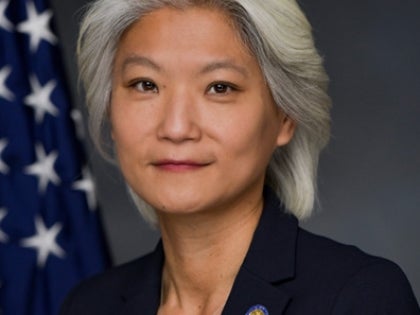
Breaks on the congestion fee?: A dozen free trips for transit deserts
As the newest state senator representing southern Brooklyn, I’ve spent the last year meeting with residents across my district. Throughout our conversations, a common theme has emerged: our transportation infrastructure is failing my working-class commuters. Brooklyn is the most populous of the five boroughs, yet we suffer from inadequate public transit and poor infrastructure.
Southern Brooklyn residents face unique challenges in this area, which is why plans to potentially charge drivers as much as $15 for driving into Manhattan’s Central Business District, or CBD, is causing high anxiety for almost everyone I meet. That’s why I’m introducing legislation to help ease their burden.
For those living in transit deserts who rely on a car to get to doctor appointments or access vital government services in the CBD, congestion pricing threatens to put them over the financial edge. I agree with my constituents that congestion pricing greatly ignores the reality and needs of these communities, particularly in southern Brooklyn.
I am leading the charge on proactive legislation that helps protect those who must occasionally drive into the CBD from being penalized. My proposed bill will grant certain commuters 12 free trips per year into the zone, with congestion pricing only taking effect upon the 13th trip. This encourages New Yorkers to avoid unnecessary excursions while also financially protecting drivers who have no other option. This is also an especially important step when no guarantees have been made to Brooklyn that the levied funds will be reinvested in our own transit infrastructure.
Unlike many other parts of the city, my district is home to one of the highest rates of car-dependent households. Southern Brooklyn is a transit desert with limited subway lines and unreliable service, with some families living up to a mile away from stations. We simply don’t have the transportation options available to us like the transit-rich CBD, leaving many working class households and individual laborers reliant on their vehicles.
And for my constituents who are immunocompromised, seeking health care, or have other mobility constraints, a car is their only safe option. My long held concerns were echoed by Transport Workers Union International President John Samuelsen, when he resigned from the Traffic Mobility Review Board because the proposed plan has neither guarantees for public transit improvements nor incentivizing policies to avoid unnecessary trips into the CBD.
My bill is a proverbial carrot he was seeking among the sticks of the proposed plan. Congestion pricing is designed to encourage choices other than superfluous travel, not punish those who don’t have other options.
Not only do we need to protect certain drivers from being unfairly taxed, but we must work to broadly improve the public transit that’s available to Brooklynites. That’s why this past legislative session, I also helped ensure that the MTA not only remained financially solvent, but also increased services on the N and R train. However, accessible public transportation means more than just frequency. We must also concentrate our efforts on making them safer for all riders.
My immigrant, Jewish, Muslim, and Asian-American constituents who have witnessed a rise in hate crimes on our subways. Just this past summer, a video went viral of an Asian-American family visiting NYC being berated with xenophobic remarks on an F train. It broke my heart to see such violence against the family, including a young girl, and brought back a personal sense of fear and anger.
There is no denying Asian-Americans still fear such attacks and violence in public spaces, which is why we need to invest in meaningful subway safety protocols so everyone is safe and protected on their trips. Everyone deserves to feel that level of security. Unfortunately for many of my constituents, that is not the case on our subways.
The quality of transportation informs our quality of life here in southern Brooklyn. I am proud of the work I’ve done on behalf of this community to improve services and support the busy lives of my constituents without cutting into their bottom line. Together we’ve improved the reliability of public transportation and pushed for the necessary resources to keep our residents mobile.
But Brooklyn isn’t like Manhattan. For us in the outer boroughs, our fight isn’t over. That’s why I am taking these proactive steps to protect working class families who rely on cars as a last resort from undue congestion pricing penalties, while also ensuring that we have more frequent, safer public transit options for those who need it. The residents of my district are on the move, and I’m here to make sure our transportation policies catch up and keep up.
Chu has just completed her first year in the state Senate.
